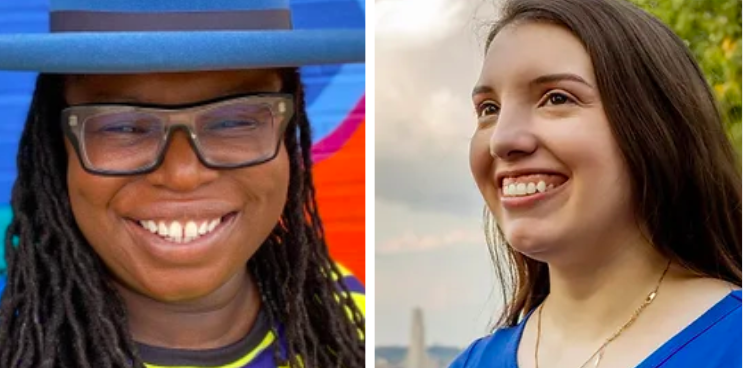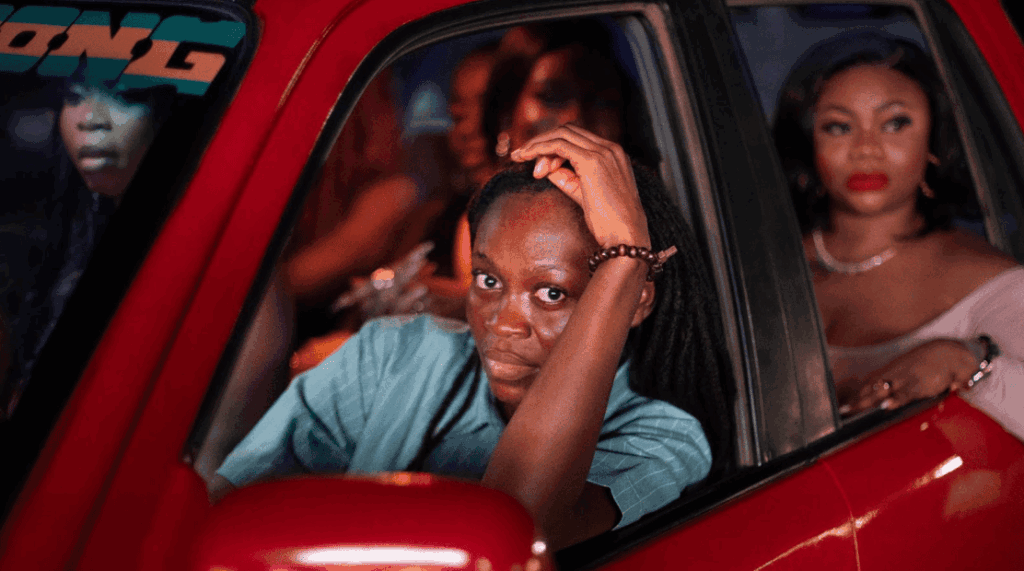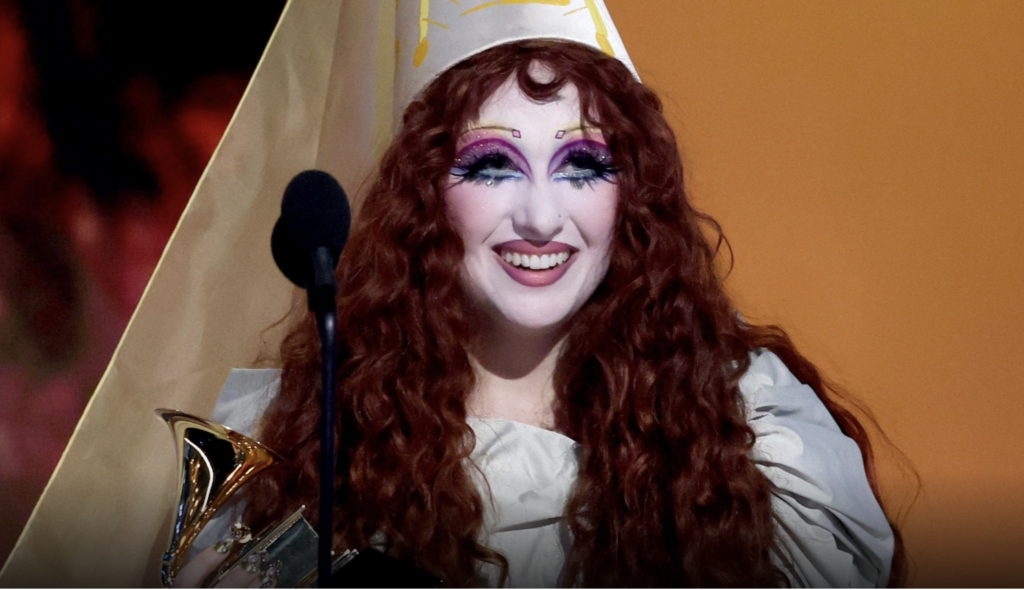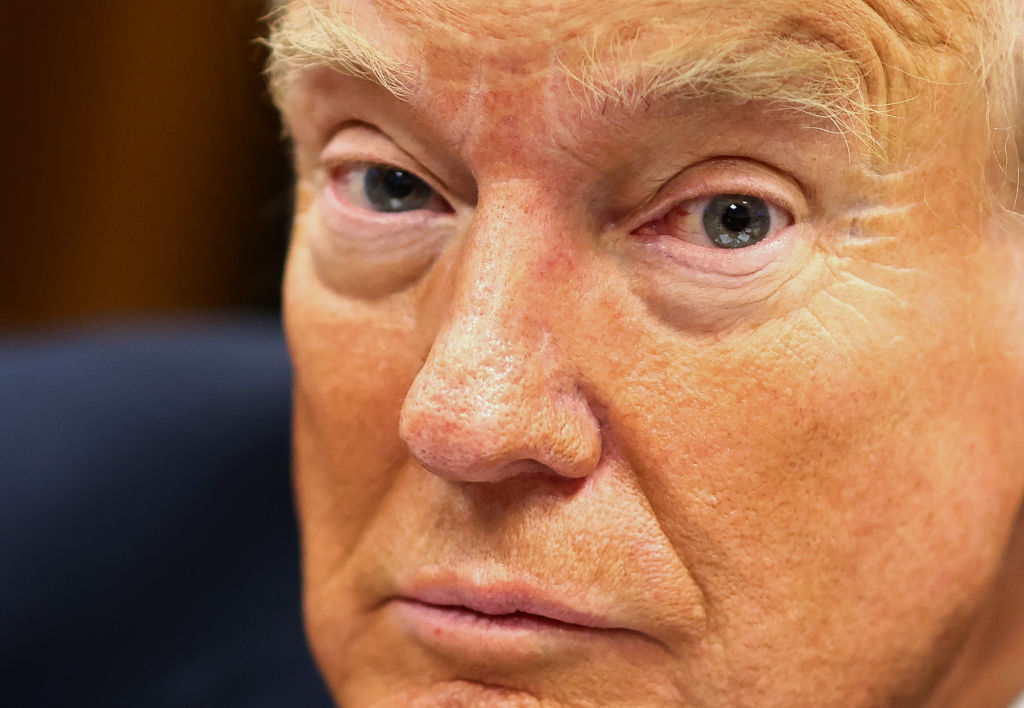Pennsylvania’s First Openly Queer Women Lawmakers Take A Stand In GOP-Controlled Legislature

“I may the first out lesbian to serve in the Pennsylvania House of Representatives, but I definitely will not be the last.”
The Mid-Atlantic state of Pennsylvania includes the liberal metropolis of Philadelphia, the state’s biggest city with the highest population, and runner-up Pittsburgh on the west side of the state.
Yet, due to what many say is Republican gerrymandering, the GOP has controlled both the Senate and House of Representatives in the Pennsylvania General Assembly since 2011.
Democratic Gov. Tom Wolf has been a champion of queer Pennsylvanians, but his term is ending. If the Republican candidate Doug Mastriano, a far-right opponent of gay rights, defeats Democrat Josh Shapiro in November, the outlook is grim for many queer Pennsylvanians.
Regardless of who occupies the governor’s office, two openly queer Democratic lawmakers – Rep. Jessica Benham and newly elected La’Tasha D. Mayes, both of the Pittsburgh area – will be fighting for the LGBTQ+ community, women, and other Pennsylvanians.
Rep. Jessica Benham
View this post on Instagram
Jessica Benham, the first openly queer woman elected to the Pennsylvania state legislature, never actually came out to her conservative Christian parents. They found out about her bisexuality in a newspaper article a few years ago, even though she had been gradually coming out since her college years at the evangelical Bethel University in Minnesota.
“Well, at least you married a man,” her father, a Baptist preacher, told his daughter after reading the article.
Rep. Benham, who is 31 and now divorced, tells GO she just doesn’t discuss her sexuality with her family, as they are far apart in their worldviews. Although their religious beliefs don’t condone homosexuality, she doesn’t doubt that they always have loved her. She is happy, though, to have found her freedom from oppressive religion, and Benham is now part of a progressive faith community in Pittsburgh.
“I got out from my parents’ roof and was like, ‘OK, screw that. I’m not doing that thing anymore,’” Benham tells GO about the anti-gay religious beliefs. “I’m not going to live in that context.”
The Pittsburgh resident, whose district includes parts of the city’s South Side and a few suburban communities, was first elected in November 2020 to fill a seat in the House of Representatives vacated by the retiring Rep. Harry Readshaw. Benham is not only the first openly queer woman in the Pennsylvania legislature, but also the first openly autistic person to serve as well. Before her political run, Benham co-founded the nonprofit Pittsburgh Center for Autistic Advocacy.
She brings her passion for equality and making life better for all Pennsylvanians – particularly in the area of health care and education – to her new career in politics. Why did she shift gears and enter that cutthroat world?
“People twisted my arm into it,” Benham jokes. “People said, ‘Hey, have you thought about running for office?’ I kind of laughed at time … and said, ‘People don’t elect people like me.’”
Oh yes, they do, and they did. Benham handily defeated her Republican opponent A.J. Doyle in a district that may lean blue but where many people who voted for her also voted for Donald Trump. In Allegheny County, which includes the city of Pittsburgh and many suburbs, voters supported Biden over Trump by 59.6 percent over 39.2 percent. Benham also sees some “Let’s Go Brandon” and Trump flags in her otherwise heavily Democratic city neighborhood.
The contrast among voters in this purple state – often described as a red “T” shape, with blue Pittsburgh and Philadelphia in the southwestern and southeastern corners, respectively – may be most obvious in the more rural areas, often derisively referred to as “Pennsyltucky.” Benham pushes back on this sentiment, and she emphasizes how conservatives and liberals are in all parts of Pennsylvania, although they are more concentrated in some areas. Even the rural counties have very active grassroots Democrats.
“I think when we talk about Pennsyltucky and things like that, we’re really discounting the experience of rural people,” Benham tells GO. “I try to be very careful not to speak dismissively about people whose life is different from my own.
“There is this idea that certain parts of this state are wholly liberal or wholly right-wing, and that’s not true,” says Benham, who is involved with the Pittsburgh queer community and is an elder at the Hot Metal Bridge Faith Community, a gay-friendly church.
“While at the same time,” Benham adds, “I think it’s important for people who live in urban areas to be aware of the fact that there are people around them who don’t agree with them.”
Still, the atmosphere in Harrisburg, Pennsylvania’s state capital, is highly partisan and divided, Benham says. This state has a Republican-controlled House and Senate, which have difficulty working with Democratic Gov. Tom Wolf. Republicans regularly do not allow Democrat-sponsored bills out of committee for a vote, Benham says. Also, Pennsylvania’s political maps are heavily gerrymandered by Republicans for partisan reasons, she says.
All of this needs to change, Benham says, in order to better serve the state’s diverse residents. But change will be difficult with Republicans controlling both chambers of the legislature. Case in point: Last year, Benham spoke in support of including anti-discrimination legislation in a proposed constitutional amendment. The measure would have protected LBGTQ+ people in employment, housing, and health care. Every Republican voted against it, while every Democrat supported it. Did that feel like a personal attack for Benham?
“I wasn’t surprised,” she says, resigned to the usual political stunts in Harrisburg. “For it to hurt, you have to be surprised.”
Likewise, Benham is a prime sponsor of the PA Fairness Act, which would prohibit discrimination against Pennsylvanians based on sexual orientation, or gender identity or expression. But sadly, Benham knows the bill will never get out of committee because of Republican leaders. But, fighting for this is still the right thing to do, she says.
“We exist in a state where at many levels of government, LGBTQ+ people are told that their lives are not valuable and not worth it,” Benham says.
The Human Rights Campaign PAC, which endorsed Benham in her first election, has endorsed her for re-election this November. She says she is happy to represent the residents of her district, and to be a visible advocate for people everywhere who are queer or autistic. Benham came from a society where homosexuality was frowned upon, but she wants other people to feel accepted.
“Having out role models is so important,” Benham says.
La’Tasha D. Mayes
View this post on Instagram
La’Tasha D. Mayes – who won a special primary election on May 17 to replace Ed Gainey, who vacated his seat in the 24th House district to become Pittsburgh’s mayor – didn’t grow up in an overtly anti-gay environment like Benham did. But still, people in her world just didn’t talk about sexual orientation; Mayes recalls her mother’s deafening silence during lesbian scenes in movies like the movie “The Color Purple,” a movie she enjoyed commenting on otherwise.
“There was either awkward silence or uncomfortable things said in jest,” Mayes says. “The only conversation I remember was my brother and I challenging my mother when she said something to the effect of, ‘I know my children better not be gay.’ At the time, I was horrified because my mother was very much about justice and what is right, so I did not understand the disconnect,” Mayes recalls.
“We argued the point in our limited language as pre-teens that it was not right to judge people for being gay and we went hard to make our point.”
Mayes, who grew up in West Philadelphia, has no Republican opponent in the November election. She will be the first Black lesbian in the Pennsylvania legislature, and one of just four openly queer Harrisburg lawmakers: Mayes, Benham, Rep. Brian K. Sims, and Rep. Malcolm Kenyatta.
Mayes – who is in a longtime relationship with her girlfriend, Heather Reel – wants to fight the right wing in Harrisburg by voting to protect queer Pennsylvanians and preserve reproductive rights. These are two of the issues that are most important to Mayes, who cannot imagine Pennsylvania under Mastriano as governor – especially if both the House and Senate remain in Republican hands.
“Everything we hold dear and value will be on the chopping block,” says Mayes, citing the “Republican longstanding commitment to denying our humanity.”
This is an extremely challenging time to become a state representative, when so much is at stake, explains Mayes, who also cares deeply about environmental justice, public education, voting rights, and workers’ rights.
“Nothing about governing and Harrisburg is easy,” she says. “We’re on the brink of terrible things to come for so many of our communities – people of color, LGBT folks.
“We are no longer in a position to take our human rights for granted, in Pennsylvania or in any state in this nation,” Mayes tells GO.
She is drawing her passion from her upbringing. Although she grew up in a don’t-ask-don’t-tell kind of environment regarding sexuality, Mayes’ family did discuss the values of justice and fighting for righteous causes. Her mother, Charlotte D. Stroud, was a union member who worked in food service in Philadelphia’s public schools, and she cared about kids facing food insecurity on the weekends. It took many years for Mayes to come out to her family, though.
Mayes recalls feeling attracted to girls as a pre-teen, but she repressed the feelings – especially in high school, where she already stood out as one of the only Black students at her all-girls school. Then, in her first few years at the University of Pittsburgh in 1999, there was still a stigma about being queer. Between her sophomore and junior years of college, Mayes explored her repressed feelings toward women and felt liberated.
She started coming out in 2002 to friends – then to her brother next year, and her mother in 2005. Her mother struggled to accept her lesbian daughter at first, but after some ups and downs, over time she became more open. Mayes has no doubt her mother, who died in 2018, loved her and was extremely proud of her.
“While I still grieve this unspeakable loss, I had no regrets because she knew everything about me, and she could love me in all the intersectional pieces of my identity,” Mayes says.
Now, Mayes is excited to carry on her mother’s love for justice in Harrisburg, and to be a strong role model and advocate for the queer community. Having legislative representation from one of our own means inspiration, possibility, and hope for gay people, she says.
“I want them to see themselves in me like I see myself in them,” Mayes tells GO. “Like our Vice President Kamala Harris said, ‘I may be the first woman to hold this office, but I won’t be the last.’ I feel the same way.
“I may the first out lesbian to serve in the Pennsylvania House of Representatives, but I definitely will not be the last.”












